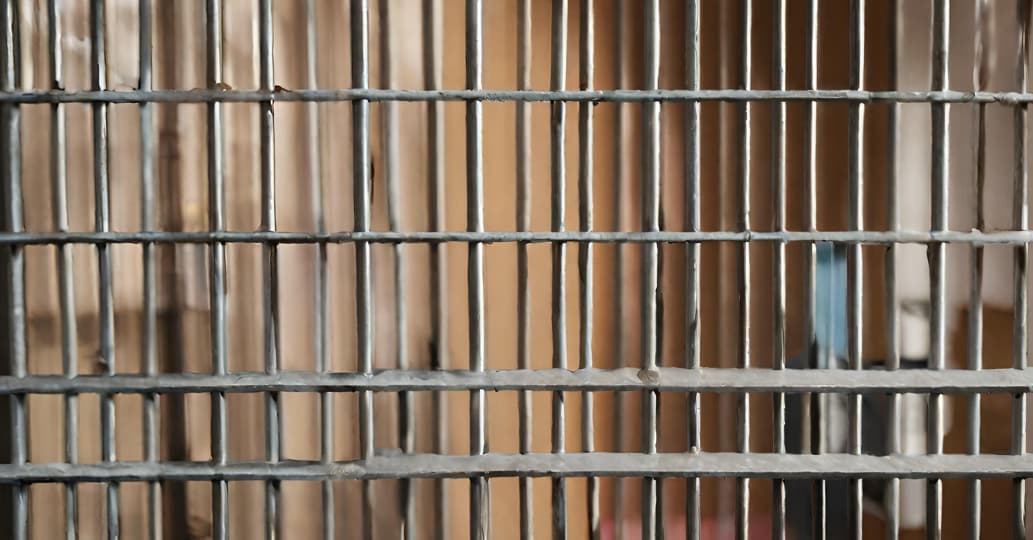The rights of prisoners are protected by laws, but enforcing them can be challenging. Lawyers who help prisoners play a crucial role in ensuring these rights are upheld. In this guide, we’ll explore the significance of legal representation for prisoners, the challenges they face, and how lawyers who help prisoners make a difference.
The Cornerstone of Prisoners’ Rights: A Commitment to Humanity
At the core of prisoners’ rights lies a profound commitment to human dignity and justice. These rights are not just legal constructs; they are a testament to society’s acknowledgment that, regardless of their crimes, individuals remain bearers of certain inalienable rights. As we navigate the intricate landscape of prisoners’ rights, we must remember that these protections are designed to strike a delicate balance between punishment and rehabilitation, fostering accountability while preserving the fundamental essence of human dignity.
1. Protection Against Cruel and Unusual Punishment
In the realm of incarceration, where the power dynamics between authorities and inmates are amplified, the prohibition against cruel and unusual punishment is an essential safeguard. This principle underscores the imperative that prisons and correctional facilities must not subject inmates to inhuman or degrading treatment. While punishment is an inherent aspect of incarceration, it should never transgress into the realm of abuse.
2. Access to Medical Care: Preserving Well-being Behind Bars
The right to receive adequate medical care is a cornerstone of prisoners’ rights. This right extends to addressing both physical and mental health needs. In essence, it encapsulates the recognition that even within the confines of a prison, individuals remain entitled to proper healthcare. Regular check-ups, treatment for illnesses, and access to mental health services are integral components of this right. It emphasizes the principle that denying prisoners access to medical care is not only a violation of their rights but also a threat to their overall well-being.
3. Due Process and Fair Treatment: Balancing Justice
Within the crucible of incarceration, due process and fair treatment stand as lighthouses guiding the way through the complexities of disciplinary proceedings. Inmates have the right to a fair and just disciplinary process, which includes the opportunity to present evidence, call witnesses, and defend themselves against accusations. The importance of this right cannot be overstated, as it upholds the principles of justice even within the prison walls.
4. Freedom of Expression: Voices Within the Walls
While the constraints on freedom of expression within the prison context are undeniable, prisoners retain the right to express themselves and maintain communication with the outside world within reasonable security boundaries. This right recognizes that even inmates have thoughts, ideas, and emotions that deserve an outlet, albeit within the framework of security and order.
5. Religious Freedom: Nurturing the Spirit
In the tapestry of prisoners’ rights, the thread of religious freedom is woven with care and respect for cultural and spiritual diversity. Incarcerated individuals have the right to practice their religion and access religious materials and services. This right acknowledges that even in the midst of confinement, the human spirit seeks solace and connection through faith.
6. Access to Legal Counsel: Defending Rights
Access to legal counsel is a cornerstone of prisoners’ rights, ensuring that inmates have the ability to seek legal guidance and representation. Whether it is to challenge their convictions, address issues related to their confinement, or assert their legal rights, the availability of legal assistance is pivotal in preserving and protecting the rights of the incarcerated.
7. Protection Against Discrimination: Equal Treatment for All
Within the prison system, discrimination based on race, religion, gender, sexual orientation, or any other characteristic is strictly prohibited. Inmates are entitled to equal treatment under the law, and this right stands as a testament to the commitment to fairness and justice even within the confines of incarceration.
8. Access to Education and Rehabilitation: Preparing for a Second Chance
Acknowledging the significance of rehabilitation, prisoners have the right to access educational and vocational programs. These programs are designed to equip inmates with the skills and knowledge necessary for a successful reintegration into society upon their release. The recognition that individuals can change and reform is at the core of this right.
9. Family and Visitation Rights: Maintaining Bonds
Incarcerated individuals retain the right to maintain connections with their families and loved ones. While visitation may be subject to reasonable restrictions necessary for security, these rights ensure that prisoners can preserve essential family bonds, fostering support systems that can aid in their eventual reentry into society.
10. Protection Against Retaliation: Shielding Advocates
Prisoners who assert their rights, file grievances, or advocate for themselves or others within the prison environment should not face retaliation or harassment. This protection against retaliation is vital for maintaining an environment where prisoners can advocate for their rights without fear of reprisal.
Challenges and Advocacy: The Road Ahead
Despite the existence of these legal protections, challenges persist within the prison system. Overcrowding, inadequate healthcare, concerns related to solitary confinement, and issues related to the treatment of vulnerable populations within prisons continue to demand attention and advocacy. Lawyers who help prisoners, along with dedicated advocates and organizations, tirelessly work to address these challenges and ensure that the principles of justice and humanity are upheld.
Conclusion
Understanding prisoners’ rights transcends the realm of legal theory; it embodies our commitment to justice and the preservation of the inherent dignity of every individual. While prisoners may have been deprived of their freedom as a form of punishment, they have not been stripped of their humanity or their rights. These legal safeguards represent not just a commitment to justice but also a recognition that individuals, even within the context of incarceration, possess the capacity for change and redemption.
Advocacy for prisoners’ rights remains a vital aspect of our commitment to justice and human dignity. It serves as a bulwark against abuses and ensures that those who are incarcerated are treated with fairness, respect, and humanity. By upholding prisoners’ rights, we not only affirm our dedication to justice but also contribute to the eventual rehabilitation and reintegration of individuals into society as responsible and law-abiding citizens. The journey of understanding prisoners’ rights is a testament to the enduring pursuit of justice and the recognition of the potential for transformation, even behind prison walls.




